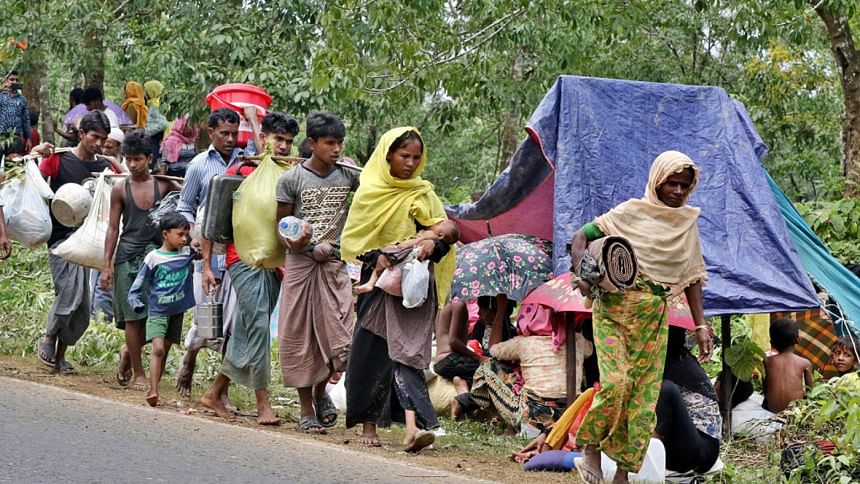Fresh international pledge of monetary help for Rohingya refugees

While Bangladesh needs more in terms of money and material help for the Rohingya refugees, that is but a temporary palliative that will do very little to redress the distress of Bangladesh or solve the problems for the Rohingyas. We deem it necessary to reiterate the timely and very appropriate call of our prime minister to the UN, and to the international community under the auspices of the UN, to assume a stronger position in dealing with and evolving a permanent solution to one of the world's worst humanitarian disaster of this century. The prime minister's call underpins the very fundamental issue of the problem. And the longer it takes to get the Myanmar government to accept a solution, just and equitable to the Rohingyas, the more will the issue become resistant to resolution. And the longer the Rohingyas stay in Bangladesh in the current circumstances, the sufferings of all the parties will multiply.
Thus, while we thank the UN and the international community for pledging USD 597 million in humanitarian assistance for Rohingyas in the region we all know it falls far short of the USD 1 billion needed. Apart from increasing the aid amount, what we feel is equally imperative is that the UN should do more than what it has done so far to bring about a permanent solution to the crisis. No amount of money can lessen the tremendous long-term impact created by the presence of nearly a million Rohingya refugees on our soil for more than three years.
The Rohingya issue has exerted tremendous strain on the country's economy, its social cohesion, ecology and security. The Rohingyas have fallen victims of human traffickers; become partners of narcotics and illegal weapon traders; the area is now a handy recruiting ground for religious and political extremists, and they have become a political tool of local politicians—being used as vote banks. Bangladesh is being pressured to issue passports to thousands of Rohingyas who have managed to travel to the Mideast. The corrupt and immoral government functionaries have reaped a healthy harvest by issuing them Bangladeshi NID cards and passports. For a country heavily encumbered by the pandemic and its economic consequences, the situation is becoming untenable.
Thus, what we would like to see is the international community doing more than urging Myanmar to create conditions for their repatriation, as they have done, once again, at the donors' conference for the Rohingyas. We urge our good friends who are friends of Myanmar too, to not allow economic and monetary considerations trump over humanitarian issues.

 For all latest news, follow The Daily Star's Google News channel.
For all latest news, follow The Daily Star's Google News channel. 



Comments